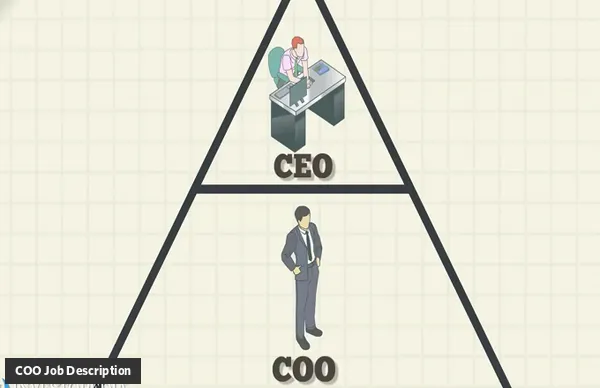COO Job Description Template
Use this COO job description template to advertise the open roles for free using Longlist.io. You can use this template as a starting point, modify the requirements according the needs of your organization or the client you are hiring for.

Job Brief
We are looking for an experienced Chief Operating Officer or COO to oversee our organization’s ongoing operations and procedures. You will be the company’s second-in-command and responsible for the efficiency of business.
The COO role is a key member of the senior management team, reporting only to the Chief Executive Officer (CEO). You’ll have to maintain control of diverse business operations, so we expect you to be an experienced and efficient leader. If you also have excellent people skills, business acumen and exemplary work ethics, we’d like to meet you.
The goal of the COO position is to secure the functionality of business to drive extensive and sustainable growth.
Responsibilities
- Design and implement business strategies, plans and procedures
- Set comprehensive goals for performance and growth
- Establish policies that promote company culture and vision
- Oversee daily operations of the company and the work of executives (IT, Marketing, Sales, Finance etc.)
- Lead employees to encourage maximum performance and dedication
- Evaluate performance by analyzing and interpreting data and metrics
- Write and submit reports to the CEO in all matters of importance
- Assist CEO in fundraising ventures
- Participate in expansion activities (investments, acquisitions, corporate alliances etc.)
- Manage relationships with partners/vendors
Requirements
- Proven experience as Chief Operating Office or relevant role
- Understanding of business functions such as HR, Finance, marketing etc.
- Demonstrable competency in strategic planning and business development
- Experience in fundraising will be a plus
- Working knowledge of data analysis and performance/operation metrics
- Working knowledge of IT/Business infrastructure and MS Office
- Outstanding organizational and leadership abilities
- Excellent interpersonal and public speaking skills
- Aptitude in decision-making and problem-solving
- BSc/BA in Business Administration or relevant field; MSc/MBA is a plus
What does COO do?
A Chief Operating Officer (COO) is responsible for overseeing and managing the daily operations of a company. Their day-to-day tasks may vary depending on the size and nature of the organization, but here are some common responsibilities:
-
Strategic Planning: COOs work closely with the CEO and other senior executives to develop the company's strategic objectives, goals, and plans.
-
Operational Management: They ensure that all operational processes are running smoothly and efficiently, including areas such as production, supply chain, customer service, and quality control.
-
Financial Management: COOs collaborate with the CFO to manage the company's financial health, monitoring budgets, expenses, and financial performance.
-
Team Leadership: They oversee various teams and departments within the company, providing leadership, guidance, and support to ensure alignment and collaboration across the organization.
-
Performance Monitoring: COOs establish and track key performance indicators (KPIs) to assess the company's performance and make data-driven decisions to improve productivity and efficiency.
-
Process Improvement: They continuously evaluate operational processes, identify areas for improvement, and implement changes to enhance productivity, quality, and customer satisfaction.
-
Stakeholder Management: COOs often interact with key stakeholders, such as clients, vendors, and partners, to build and maintain strong relationships and ensure the company's operational needs are met.
-
Risk Management: They assess and mitigate potential risks and develop contingency plans to address business disruptions, ensuring the organization's continuity.
-
Communication: COOs facilitate effective communication and collaboration within the company, ensuring that teams are aligned on objectives and informed about operational changes.
-
Executive Management: They participate in executive meetings, provide input on strategic decisions, and represent the company in various forums and events.
It's important to note that the specific responsibilities of a COO may vary depending on the organization's industry, size, and structure.
